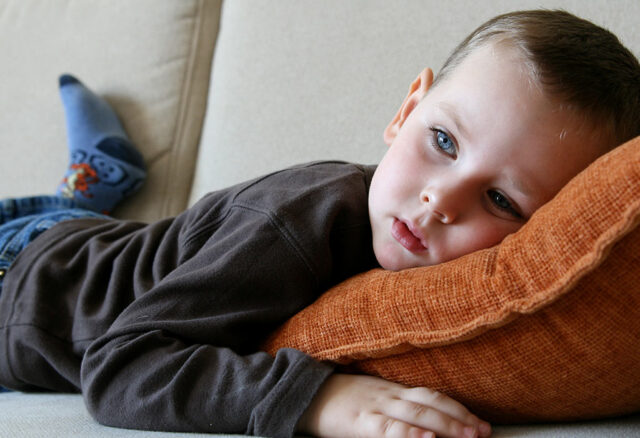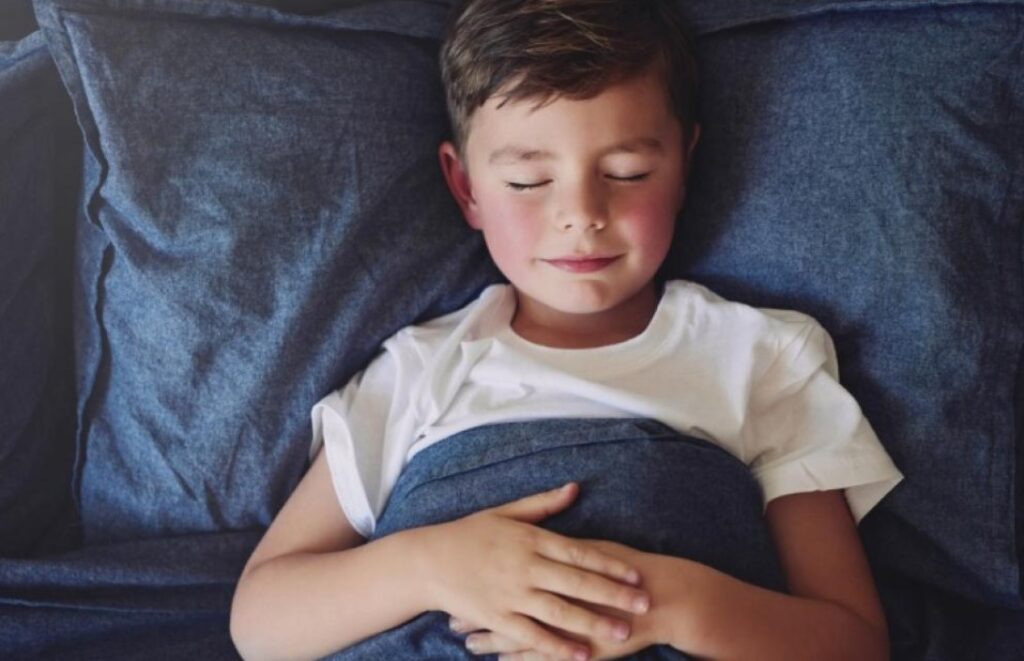
Every parent adores their child, but if we’re being honest, after a long day of parenting, most of us look forward to them sleeping so that we can have some private time! Our children, however, may not always share the same sentiment.
If you’re having trouble getting your hypersensitive children to sleep, here’s why they could be resisting and how you can put a stop to the fight with a few simple tactics.
How can you Categorize your Child to be Highly Sensitive?

A highly sensitive child is born with a sensitive neurological system that reacts swiftly to even the tiniest of conditions that others may consider insignificant. A hypersensitive kid is eager to react to everything and thinks deeply about everything. They are also often overwhelmed when they observe others in suffering.
These children are either very peaceful, introverted, and relatively easy to raise, or they are quite energetic, headstrong, and demanding. All highly sensitive children are frequently hypersensitive to their emotional and physical surroundings.
Signs of a Highly Sensitive Child
1. They’re Empathetic

Highly sensitive children are empathetic to others and consistently put others’ emotional needs above their own. As a result, they often absorb other people’s emotional distress, which has a negative impact on their physical, mental, and emotional health.
2. They are Constantly Attempting to Satisfy Others
They go out of their way to help people to please them since they don’t want to hurt anyone. This can be detrimental to them at times.
3. Their Heart is in Charge

They are so emotional that their hearts, rather than their heads, constantly govern them. As a result, following their hearts is their first instinct.
4. All Things Negative Irritate Them
These kids hate violent and scary films. They will instinctively avoid brawls and squabbles.
What’s the Deal with your Kid’s Aversion to Going to Bed?

A child’s inability to sleep can be caused by various factors. They can be overtired as a result of going to bed too late. Perhaps they are overstimulated because they do not have enough time to unwind after a long day of activities.
For several children, fear is a factor as well. They are terrified of being alone in the dark, where their mind might run wild with frightening ideas. Because they have a very active mind, highly sensitive children (HSCs) often have problems sleeping.
It might be difficult to settle their rushing thoughts, especially late at night when their minds are still processing everything that has happened during the day. They are also very aware of their surroundings, so a new sight or sound while lying in bed can pique their interest and set their pulse rushing.
How to Help a Highly Sensitive Child to Sleep?
1. Create a Routine

Routine is beneficial to children, especially extremely sensitive children. Order and routine provide a sense of serenity. A consistent bedtime schedule will greatly assist you in getting your children to cooperate. It gives them a sense of security by letting them know what to expect each night.
Because young infants do not fully comprehend the idea of time, but they do comprehend a predictable series of occurrences, it is critical to establish a precise order of familiar tasks. It informs them of what to expect each night, making your life much easier.
2. Let your Children make their own choices
The routine should be personalized to your family’s demands. Allow your child to participate in the process by giving them choices. Do they want to put on their pajamas first or clean their teeth? HSCs prefer to be in charge, so enabling them to make their own decisions within the confines of a few options will increase your child’s willingness to participate.
3. Use Weighted Blankets

The weighted blanket’s deep touch pressure on the body aids sleep in children who are nervous at night or before bedtime or youngsters who are sleeping in a new house or location. Insomniac children will sleep better under a weighted blanket because they will feel secure.
The pressure of the weighted blanket calms the nervous system. That’s wonderful news because the nervous system of a highly sensitive child is finely tuned! What’s amazing about a weighted blanket’s ability to aid sleep is that it’s absolutely natural. Click here to find more about weighted blankets.
4. Keep a Consistent Routine
The most important thing is to maintain a level of consistency. Once you’ve figured out what works best for your family, keep your routine consistent. Of course, there may be evenings when you have a special event or outing that prevents you from following the same bedtime routine, but having a consistent, predictable sleep routine is essential, particularly for sensitive children. Consistency helps prevent bedtime from becoming a power struggle, making nights less stressful and more pleasurable for everyone.
5. Create A Stress-Free Environment

After you’ve completed the necessary duties of brushing your teeth, obtaining a drink, going to the restroom, and putting on your pajamas, it’s time to relax and create a sleep-friendly environment. Begin by asking your youngster to put away any leftover toys from the day on their floor. Distractions will be reduced as a result.
After that, turn off all electronics with screens. It’s also a good idea to dim the lights or turn out everything except one soft light. If your child appears to be calmed by listening to gentle music or using a soothing sound machine, this may be an excellent alternative. These are all signs that it’s time for your child to start settling down.
Conclusion
Each stage of life brings new problems for nighttime and sleep, but with the advice mentioned above, you can adjust and progress. You now have a good idea why your hypersensitive child is having trouble sleeping in addition to learning a few basic tactics for putting an end to the bedtime conflict. So, what will you do to change your child’s present sleep routine?













